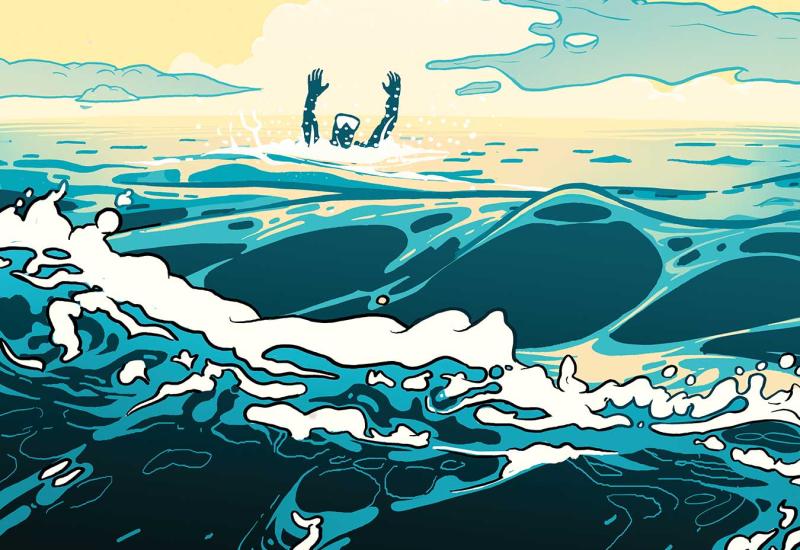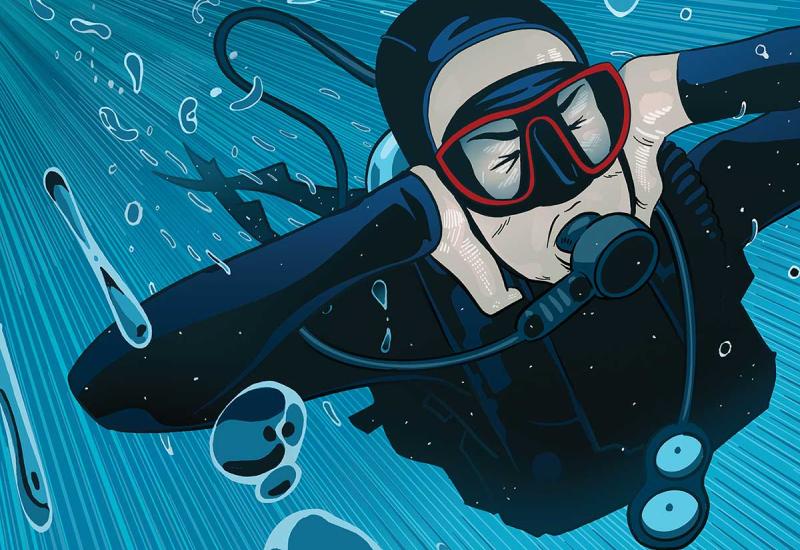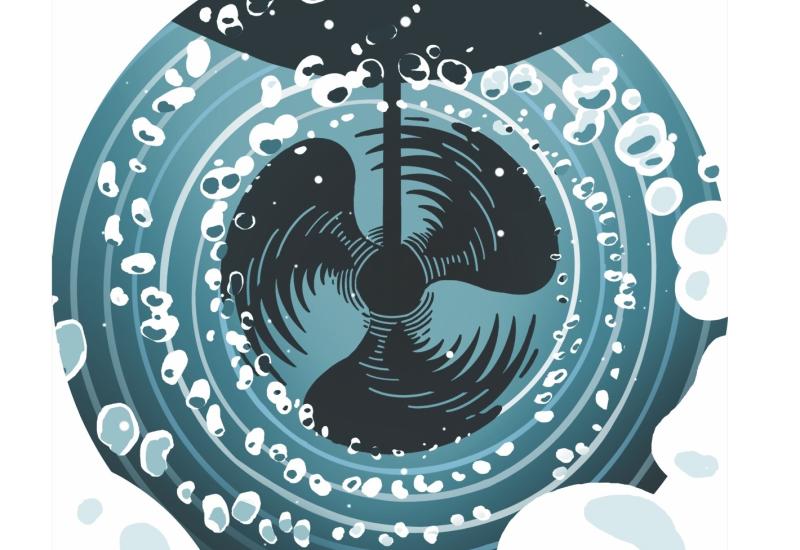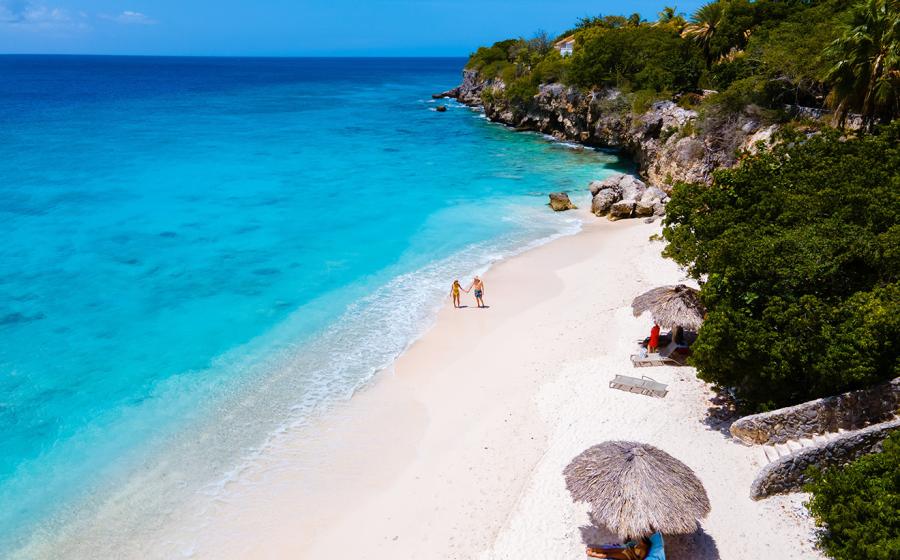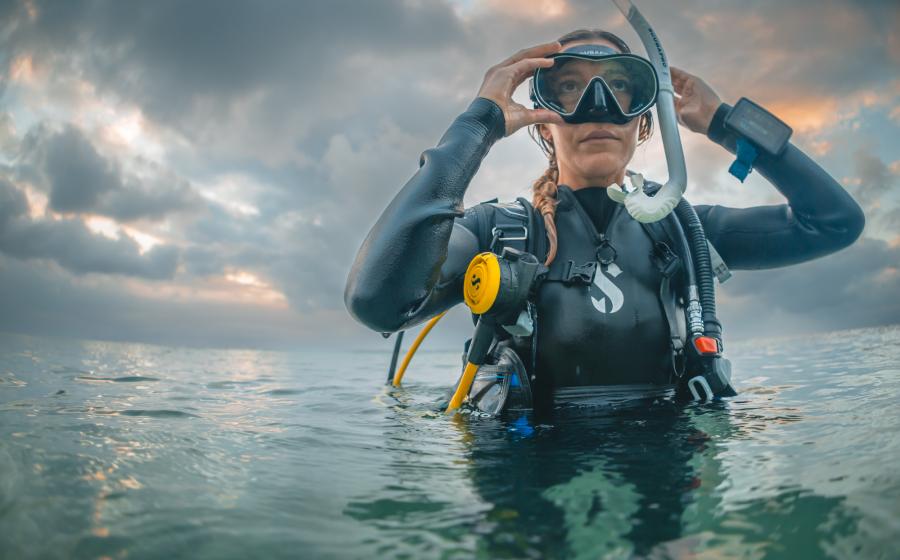Out Of Their Depth

Know your limits — it could save your life.
Shutterstock
His heart racing and his mind inexplicably clouded, Gerry found himself on the deck of the shipwreck he had come to explore, with no other divers in sight. Ten minutes ago, he had strided into the clear, warm water with his buddy, Anne, and both of them followed an experienced dive guide down the descent line. Now he couldn't see Anne and he found himself at a depth that he knew was well past the limits of his open-water training.
Gerry looked up toward the surface, and was relieved to see the divemaster above him. The divemaster whipped his head from side to side, probably looking for Anne, Gerry thought. Then he pointed at Gerry and gave him a thumbs-up. "Good," Gerry thought. "He wants me to stay put."
Before Gerry knew it, the divemaster was in front of him, fumbling with Gerry's gear in an obvious panic. Gerry heard the whoosh of his power inflator and felt his BC filling with air. The divemaster gave him a push upward, and Gerry began ascending, gaining speed as he approached the surface.
The Setup
Gerry and Anne were two new divers with fewer than 20 dives between them. They were both in good physical condition, and had excellent water skills considering their level of training. On their first tropical dive vacation, they signed up for an all-inclusive dive and accommodations package offered by a resort. They spent the first three days of their dive vacation making two uneventful dives a day on the local reefs.
The Dive
On the fourth day, the divers were surprised to be invited on a more advanced dive. Although they had little dive experience--this would be Gerry's 14th dive and Anne's 11th--the divemaster intended to take them and two other divers to a deep-water wreck.
When the divemaster gave his briefing, Gerry and Anne were surprised to find that the site was in 165 feet of water. They were cautioned to stay with the divemaster and not to venture below "145 or so." Anxiously, Gerry and Anne entered the water and descended the anchor line to the wreck below.
The Accident
Five minutes into the dive, the divemaster looked back and could locate only two of the four divers. He immediately signaled those two to end the dive and then swam back along their initial route in an attempt to locate Gerry and Anne. The divemaster found Gerry in a state of near panic and could not find Anne. The divemaster also began to panic. He roughly signaled Gerry to ascend, but Gerry misunderstood the command and continued to kneel on the wreck's deck. The divemaster decided to help Gerry get to the surface by inflating his BC. Gerry shot like a missile to the surface. After several frantic minutes of searching, the divemaster still could not locate Anne and was forced to end the dive because of a dwindling air supply.
The Rescue
Meanwhile on the surface, Gerry's ascent rate was so rapid that his head popped several feet out of the water. The other two divers were still boarding when the captain saw Gerry surface out of control. The buddy team assisted Gerry to the boat and the captain helped him aboard. Gerry was confused and disoriented, and the captain suspected an embolism or DCS incident, so he immediately called for help. The divemaster surfaced soon afterward, and the boat raced back to the dock where the local emergency services provider transported Gerry to the local chamber. Other dive boats in the area were notified of the missing diver and were asked to maintain a lookout. Gerry was treated in a recompression chamber and suffered no residual symptoms. Anne was not so lucky; her body was never recovered.
Analysis
Though they lacked proper training, equipment and experience, Gerry and Anne decided to trust the dive operator and the divemaster to keep them safe on this challenging dive.
Once under water, narcosis certainly contributed to the mishap. It's likely that narcosis caused Gerry's anxiety and confusion; for example, when he misunderstood the divemaster's signal to ascend. It's also likely that both divers experienced severe narcosis because their deepest dive to this point had been to only 80 feet. Gerry's and Anne's training would have left them unprepared for the effects of a deep air dive.
We will never know the specific cause of Anne's death; but, given the circumstances, a significant accident was predictable. In spite of assurances from the divemaster and the boat operator, these divers should have taken responsibility for their own actions and refused to make the dive.
Lessons for Life
-
As a diver, you are responsible for your own safety. The reassurance of a dive leader should never be used as a substitute for your own common sense.
-
Deep diving requires adequate training, which includes supervised deep-water experiences to get acclimated to the effects of narcosis and rapid gas usage.
-
The rules established by recreational training agencies are based on real-world experience and reviews of dive accidents. Safe divers learn from the mistakes of others and follow the guidelines provided in a quality scuba class.
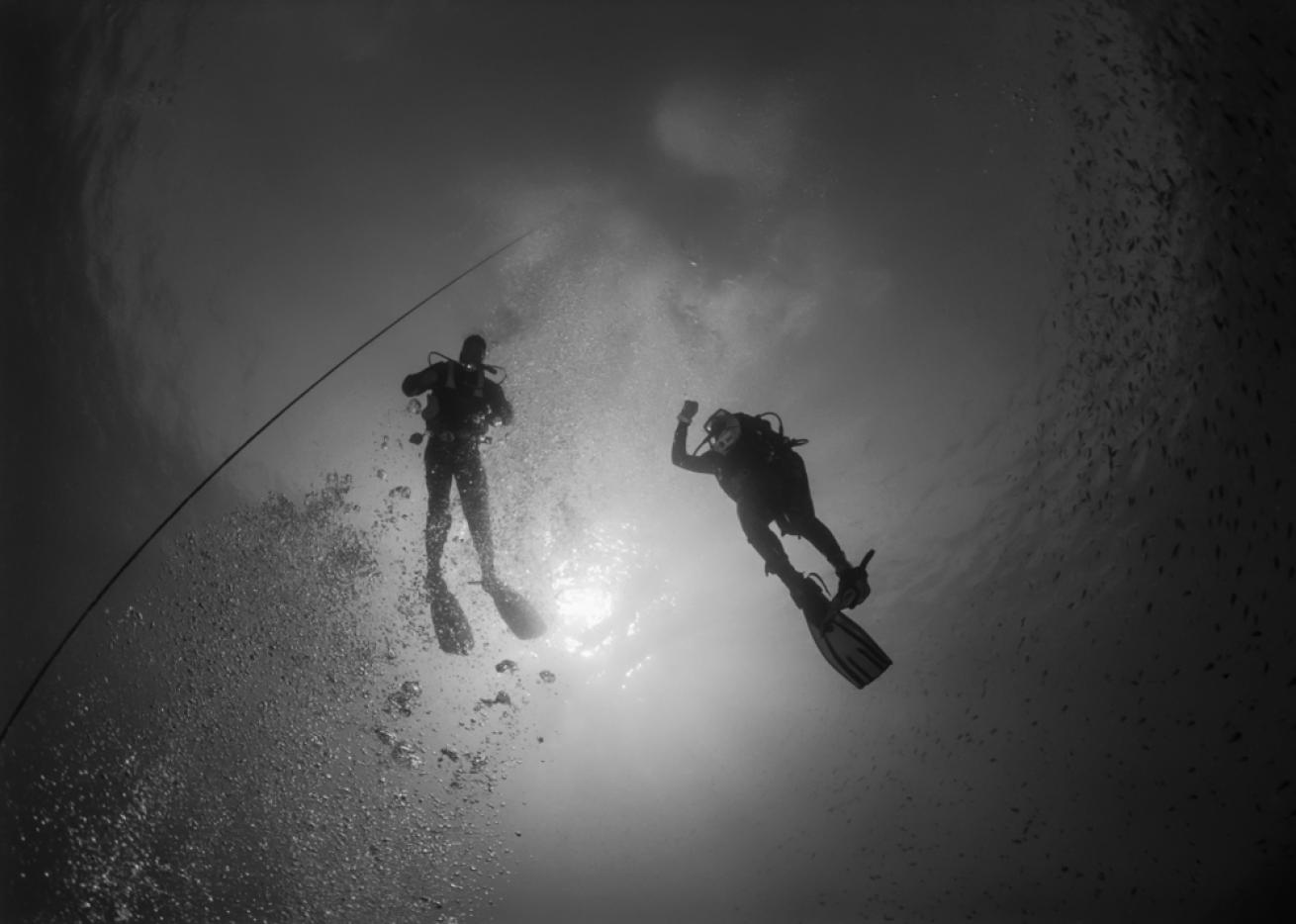
ShutterstockKnow your limits — it could save your life.
His heart racing and his mind inexplicably clouded, Gerry found himself on the deck of the shipwreck he had come to explore, with no other divers in sight. Ten minutes ago, he had strided into the clear, warm water with his buddy, Anne, and both of them followed an experienced dive guide down the descent line. Now he couldn't see Anne and he found himself at a depth that he knew was well past the limits of his open-water training.
Gerry looked up toward the surface, and was relieved to see the divemaster above him. The divemaster whipped his head from side to side, probably looking for Anne, Gerry thought. Then he pointed at Gerry and gave him a thumbs-up. "Good," Gerry thought. "He wants me to stay put."
Before Gerry knew it, the divemaster was in front of him, fumbling with Gerry's gear in an obvious panic. Gerry heard the whoosh of his power inflator and felt his BC filling with air. The divemaster gave him a push upward, and Gerry began ascending, gaining speed as he approached the surface.
The Setup
Gerry and Anne were two new divers with fewer than 20 dives between them. They were both in good physical condition, and had excellent water skills considering their level of training. On their first tropical dive vacation, they signed up for an all-inclusive dive and accommodations package offered by a resort. They spent the first three days of their dive vacation making two uneventful dives a day on the local reefs.
The Dive
On the fourth day, the divers were surprised to be invited on a more advanced dive. Although they had little dive experience--this would be Gerry's 14th dive and Anne's 11th--the divemaster intended to take them and two other divers to a deep-water wreck.
When the divemaster gave his briefing, Gerry and Anne were surprised to find that the site was in 165 feet of water. They were cautioned to stay with the divemaster and not to venture below "145 or so." Anxiously, Gerry and Anne entered the water and descended the anchor line to the wreck below.
The Accident
Five minutes into the dive, the divemaster looked back and could locate only two of the four divers. He immediately signaled those two to end the dive and then swam back along their initial route in an attempt to locate Gerry and Anne. The divemaster found Gerry in a state of near panic and could not find Anne. The divemaster also began to panic. He roughly signaled Gerry to ascend, but Gerry misunderstood the command and continued to kneel on the wreck's deck. The divemaster decided to help Gerry get to the surface by inflating his BC. Gerry shot like a missile to the surface. After several frantic minutes of searching, the divemaster still could not locate Anne and was forced to end the dive because of a dwindling air supply.
The Rescue
Meanwhile on the surface, Gerry's ascent rate was so rapid that his head popped several feet out of the water. The other two divers were still boarding when the captain saw Gerry surface out of control. The buddy team assisted Gerry to the boat and the captain helped him aboard. Gerry was confused and disoriented, and the captain suspected an embolism or DCS incident, so he immediately called for help. The divemaster surfaced soon afterward, and the boat raced back to the dock where the local emergency services provider transported Gerry to the local chamber. Other dive boats in the area were notified of the missing diver and were asked to maintain a lookout. Gerry was treated in a recompression chamber and suffered no residual symptoms. Anne was not so lucky; her body was never recovered.
Analysis
Though they lacked proper training, equipment and experience, Gerry and Anne decided to trust the dive operator and the divemaster to keep them safe on this challenging dive.
Once under water, narcosis certainly contributed to the mishap. It's likely that narcosis caused Gerry's anxiety and confusion; for example, when he misunderstood the divemaster's signal to ascend. It's also likely that both divers experienced severe narcosis because their deepest dive to this point had been to only 80 feet. Gerry's and Anne's training would have left them unprepared for the effects of a deep air dive.
We will never know the specific cause of Anne's death; but, given the circumstances, a significant accident was predictable. In spite of assurances from the divemaster and the boat operator, these divers should have taken responsibility for their own actions and refused to make the dive.
Lessons for Life
As a diver, you are responsible for your own safety. The reassurance of a dive leader should never be used as a substitute for your own common sense.
Deep diving requires adequate training, which includes supervised deep-water experiences to get acclimated to the effects of narcosis and rapid gas usage.
The rules established by recreational training agencies are based on real-world experience and reviews of dive accidents. Safe divers learn from the mistakes of others and follow the guidelines provided in a quality scuba class.


